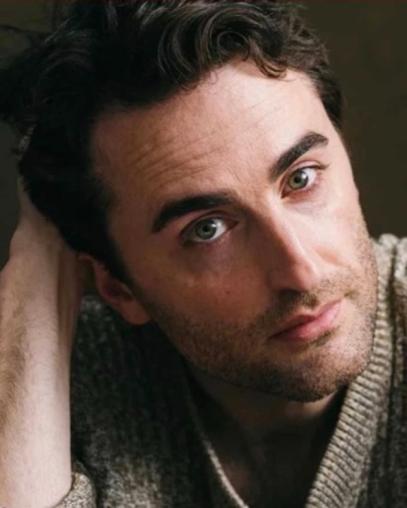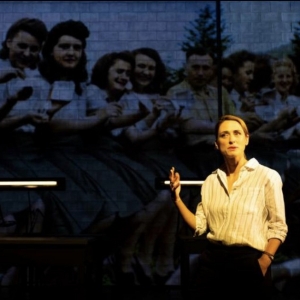Here There Are Blueberries
Closing: June 30, 2024Here There Are Blueberries - 2024 Off-Broadway History , Info & More
New York Theatre Workshop
79 East 4th Street New York, NY 10003
In 2007, a mysterious album featuring Nazi-era photographs arrived at the desk of a U.S. Holocaust Memorial Museum archivist. As curators unraveled the shocking truth behind the images, the album soon made headlines and ignited a debate that reverberated far beyond the museum walls. Based on real events, Here There Are Blueberries tells the story of these historical photographs—what they reveal about the perpetrators of the Holocaust, and our own humanity.
Here There Are Blueberries - 2024 - Off-Broadway Cast
FEATURED REVIEWS FOR Here There Are Blueberries
Review: ‘Here There Are Blueberries’ Studies Holiday Photos from Hell
6 / 10
For a historian or student of World War II, such details will not be surprising—or new. Audiences who prefer a dramatic treatment of similar material can stream Jonathan Glazer’s The Zone of Interest, which fixes an unnervingly calm eye on the home life of Rudolf Höss, the commandant of Auschwitz. (The movie’s loosely based on a Martin Amis novel but overlaps with the Höcker album.) Even though at times Here There Are Blueberries seems less a play than a live PBS documentary (and, at worst, an infomercial for the Holocaust Museum), it’s still a compelling 90 minutes. That’s down to strong cast, anchored by the luminous Stahlmann, a grimly determined angel bringing light and a sword into darkness. Derek McLane’s spare but effective scenic design—work desks and screen—neatly cradles David Bengali’s elegant projection design, integral to the impact. In the end, the piece asks what the camera caught and what it excluded. We have seen the carnage of the death camps. That ultimate horror is the result of countless steps from everyday civility to desensitized inhumanity.
HERE THERE ARE BLUEBERRIES: A NEW, INVALUABLE HOLOCAUST STAGE DOCUMENTARY
9 / 10
Presented without an intermission – clearly, Kaufman wants no interruption of the mounting intensity – the documentary is an invaluable addition to Holocaust literature. It’s made even more so by the excellent ensemble, all conveying the Tectonic Theater Project’s gravity.
Here There Are Blueberries History
Other Productions of Here There Are Blueberries
| 2024 | Off-Broadway |
NYTW Off-Broadway Premiere Production Off-Broadway |
Here There Are Blueberries - 2024 Off-Broadway Awards and Nominations
| Year | Ceremony | Category | Nominee |
|---|---|---|---|
| 2025 | Outer Critics Circle Awards | Outstanding New Off-Broadway Play | Here There Are Blueberries |
| 2024 | The Pulitzer Prize | Pulitzer Prize for Drama | Moisés Kaufman |
Videos






